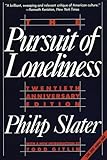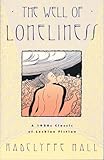As both a reader and a book collector, I’m a big fan of college library book sales. Held annually or bi-annually at colleges and universities across the country, these sales convert library discards and unwanted donations into desperately needed funds. Uncluttered by the kinds of books that glut public library sales, the college library book sale paints an interesting picture of town-gown reading habits.
When I had the opportunity to attend The Friends of the Library Used Book Sale at the State University of New York in New Paltz, I tried to get there as early as possible, knowing that ambitious local booksellers and scouts would arrive when the door opened at 8:00 a.m. Not that I was necessarily looking for an overlooked first edition (although applying my esoteric knowledge about books and collecting for profit would be fun). Lest you think that the tables were filled with the fifth edition of the MLA Handbook, I will declare up front that I did find one such diamond in the rough — a first edition of Dwight Macdonald’s Against the American Grain: Essays on the Effects of Mass Culture in a Brodart-enclosed dust jacket (always a good sign). The book was not an ex-library copy — a red flag for collectors, but not readers — and because I had studied the book in graduate school, I knew not only its academic value, but also its scarcity on the market. I had purchased my own copy about ten years ago, settling for a yellowing, faded paperback, which still sits on my shelves. It’s not a find that will make me rich, but if I chose to sell it, I could buy five New York Times bestsellers in hardcover.

 I found an uncanny number of books at this sale that I would have purchased had I not already owned a copy, such as Philip Slater’s The Pursuit of Loneliness, a classic of the American counterculture movement; or, David Denby’s 1997 tirade about preserving the Western canon, Great Books: My Adventures with Homer, Rousseau, Woolf, and Other Indestructible Writers of the Western World; or David Lodge’s superb satire, The British Museum is Falling Down. I should have bought that last one anyway, my copy is badly worn. A hardcover of Johnny Tremain, the story of a young silversmith apprentice in Revolutionary America, caught my eye, but again, I had one in similar condition at home. I read this book in seventh grade and recall it now as one of the books that made me like reading and learning about history.
I found an uncanny number of books at this sale that I would have purchased had I not already owned a copy, such as Philip Slater’s The Pursuit of Loneliness, a classic of the American counterculture movement; or, David Denby’s 1997 tirade about preserving the Western canon, Great Books: My Adventures with Homer, Rousseau, Woolf, and Other Indestructible Writers of the Western World; or David Lodge’s superb satire, The British Museum is Falling Down. I should have bought that last one anyway, my copy is badly worn. A hardcover of Johnny Tremain, the story of a young silversmith apprentice in Revolutionary America, caught my eye, but again, I had one in similar condition at home. I read this book in seventh grade and recall it now as one of the books that made me like reading and learning about history.
When I noticed a copy of Sensational Designs: The Cultural Work of American Fiction, 1790-1860, I felt a pang of sadness and wondered whether this amazing work — one I relied on heavily in graduate school — cast off in such a way means that Jane Tompkins is no longer a staple in English and history departments. Surely that can’t be the case; it was just being passed along to a new generation of scholars, and some young English major will adopt it. It’s hard to believe that Tompkins published that book twenty-five years ago.
 There are always some textbooks mingled into the college library book sale, and at this one, I also spotted a book of literary terms quite like the one I bought when I was in high school. The fiction struck me as exquisitely cerebral. The Well of Loneliness, a 1928 novel by Radclyffe Hall, was the subject of censorship and banning when it was first published in the U.S. Though critics felt it beautifully written, its lesbian content was impossible to overlook. This novel is found on the syllabi of women’s studies and sociology courses; I wrote a paper on it in a class on the history of propaganda. In more modern (but literary) fiction, A. S. Byatt’s Babel Tower, a novel set in bookish 1960s England, and Mark Helprin’s Freddy and Fredericka, a surreal critique of nobility, almost came home with me. (Both authors are highly enjoyable, thought provoking, and, admittedly demanding.) When I spied the fine dust jacket of Joyce Carol Oates’ You Must Remember This, I thought I might have another treasure in my hands. Alas, it turned out to be a book club edition (red flag!).
There are always some textbooks mingled into the college library book sale, and at this one, I also spotted a book of literary terms quite like the one I bought when I was in high school. The fiction struck me as exquisitely cerebral. The Well of Loneliness, a 1928 novel by Radclyffe Hall, was the subject of censorship and banning when it was first published in the U.S. Though critics felt it beautifully written, its lesbian content was impossible to overlook. This novel is found on the syllabi of women’s studies and sociology courses; I wrote a paper on it in a class on the history of propaganda. In more modern (but literary) fiction, A. S. Byatt’s Babel Tower, a novel set in bookish 1960s England, and Mark Helprin’s Freddy and Fredericka, a surreal critique of nobility, almost came home with me. (Both authors are highly enjoyable, thought provoking, and, admittedly demanding.) When I spied the fine dust jacket of Joyce Carol Oates’ You Must Remember This, I thought I might have another treasure in my hands. Alas, it turned out to be a book club edition (red flag!).
Dare I call these selections highbrow? Is this what the intellectual elite reads? What would Macdonald say — that academics are still valiantly resisting “masscult”? (It would help explain the dearth of Da Vinci Codes at this sale.) Would he categorize them as “high art” or, more likely, “midcult” — i.e., watered-down “high art”? Three of the novelists cited above were, at some point, Book-of-the-Month Club picks, of which Macdonald writes, “Midcult is the Book-of-the-Month-Club, which since 1926 has been supplying its members with reading matter of which the best that can be said is that it could be worse.” (Byatt’s most popular novel, Possession, was a BOMC selection. It also won the Man Booker Prize. Having read it, I’d be hard-pressed to call it lite literature.)
What did I end up buying at the SUNY sale, aside from old Macdonald? Only one other book: a Modern Library edition of The Collected Short Stories of Dorothy Parker. I enjoy the handy format of older ML editions, and this one retained its jacket in good condition, which is always a plus. This slim volume will fit nicely on the shelves I’ve devoted to Parker and the Algonquin Round Table. Modern Library, a publisher known throughout the twentieth century for its reprints of so-called classics, is often spotted at college library sales, as are some of the other classic reprinters; I recognized several World’s Classics at the New Paltz sale.
My husband found two books to take home that day — one, a professional monograph on voice and diction (his area of expertise) and the other a book called The Winter Beach by Charlton Ogburn Jr., a blend of memoir and natural history strikingly similar to the Henry Beston classic, The Outermost House, that he admires.
I brooded over what it says about me as a reader that my tastes are so easily reflected here on the tables outside a college library. But then, who cares what it says about me — what’s more significant is what it reinforces about campus reading. First and foremost, it says that physical books aren’t dead! The sale was packed — with students. Secondly, it manifests our common academic purpose in a liberal arts education — to read and think broadly and seriously in areas like sociology, history, and modern literature. Finally, it shows wide (concentric) participation in the stimulating circle of readership. Books at college library sales generally are not rare, collectible, or even particularly well cared for, but they are read, studied, assigned, highlighted, underlined, bought, sold, and loved (or hated) by students, professors, and college-town locals, and that is encouraging indeed.
Image credit: UofSLibrary/Flickr









